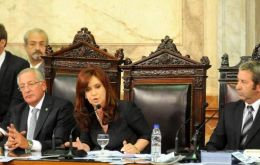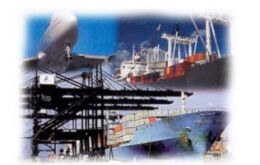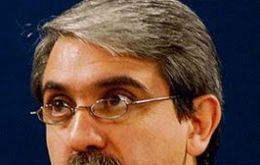MercoPress. South Atlantic News Agency
Argentina
-
Wednesday, March 2nd 2011 - 07:14 UTC
Argentine president promises to keep pushing ‘permanently’ for Malvinas

Argentina’s claim of the Malvinas Islands only had a brief specific mention in President Cristina Fernandez de Kirchner Tuesday address to Congress where she outlined the achievements of her administration and plans for the remaining nine months of her four year mandate.
-
Wednesday, March 2nd 2011 - 00:41 UTC
CFK underlines Argentine economic and political progress, but no word on re-election

Addressing Congress on Tuesday Argentine president Cristina Fernandez de Kirchner, CFK, underlined the economic and political development brought on by her administration saying that they helped all Argentine citizens to lead a better quality of life.
-
Tuesday, March 1st 2011 - 23:52 UTC
Pro-Kirchner academics want Nobel Prize Vargas Llosa out of Argentina

Intellectuals close to Argentine President Cristina Fernandez de Kirchner launched a campaign Tuesday to stop Nobel Prize Mario Vargas Llosa from opening the Spanish-speaking world's largest cultural fair because of his disparaging remarks about Argentine politics.
-
Tuesday, March 1st 2011 - 06:40 UTC
Argentina’s imports growth outpacing exports by two to one

Argentina’s January trade surplus in January confirmed the shrinking tendency increasingly present all along 2010 as imports’ growth outpaced exports by two to one.
-
Tuesday, March 1st 2011 - 04:50 UTC
Malvinas after all are the Falkland Islands, say Argentine official webs

The Argentine press claimed Friday that the official news agency argentina.gob.ar, which depends from the government’s Mass Media Secretariat, is using in its web presentation Google maps of the country which refer to the South Atlantic archipelago as Falkland Islands and only in brackets (Malvinas).
-
Tuesday, March 1st 2011 - 02:46 UTC
Argentine military dictators on trial for stealing hundreds of babies

Two former Argentine dictators appeared in court Monday on charges of kidnapping hundreds of babies seized from political prisoners, minutes after birth. Ex rulers Jorge Videla and Reynaldo Bignone alongside with six other former military officers are involved in the court case that is expected to last until the end of the year.
-
Tuesday, March 1st 2011 - 00:17 UTC
Cristina Fernandez re-election bid in “inevitable” says cabinet chief

Argentine President Cristina Fernandez de Kirchner re-election bid is “inevitable” said cabinet chief Anibal Fernandez who nevertheless pointed out it was “premature” to talk about candidates for next October’s presidential election.
-
Monday, February 28th 2011 - 06:36 UTC
Argentina/Uruguay launch campaign to jointly organize 2030 World Cup

Uruguay and Argentina will take advantage of the coming 2011 America Cup (Copa América) to promote their joint candidacy to organize soccer’s major event: the 2030 World Cup on occasion of the centenary of the first time the tournament was played.
-
Monday, February 28th 2011 - 01:21 UTC
Paraguay exported more beef than Argentina in 2010

Paraguay overtook Argentina as beef exporter in 2010 confirming the country’s loss of leadership in the world’s meat markets, according to reports in the Argentine and Paraguayan media.
-
Saturday, February 26th 2011 - 10:37 UTC
Falklands Facts

In his reply of 19 February to my letter of the 12th, Mr. Cisneros says “the worst thing we can do is quibble and distract ourselves from the main problem”. But it is not a “quibble” to state simple facts, as I did in my letter. So I suggest we get a few facts straight – not unilateral facts, but straightforward historical facts.
